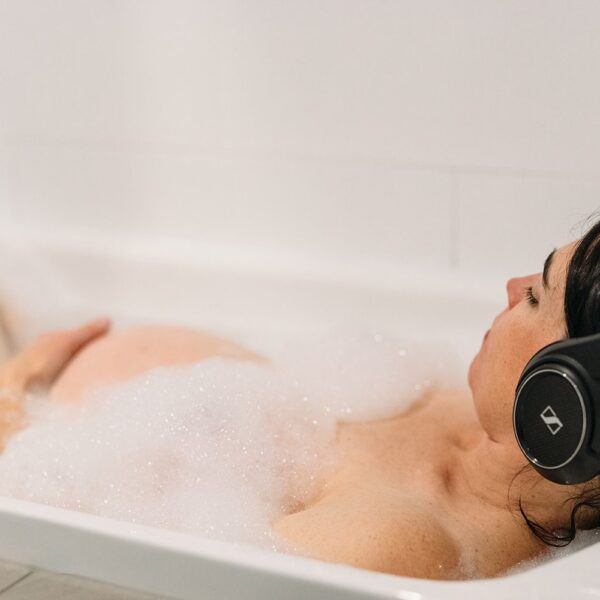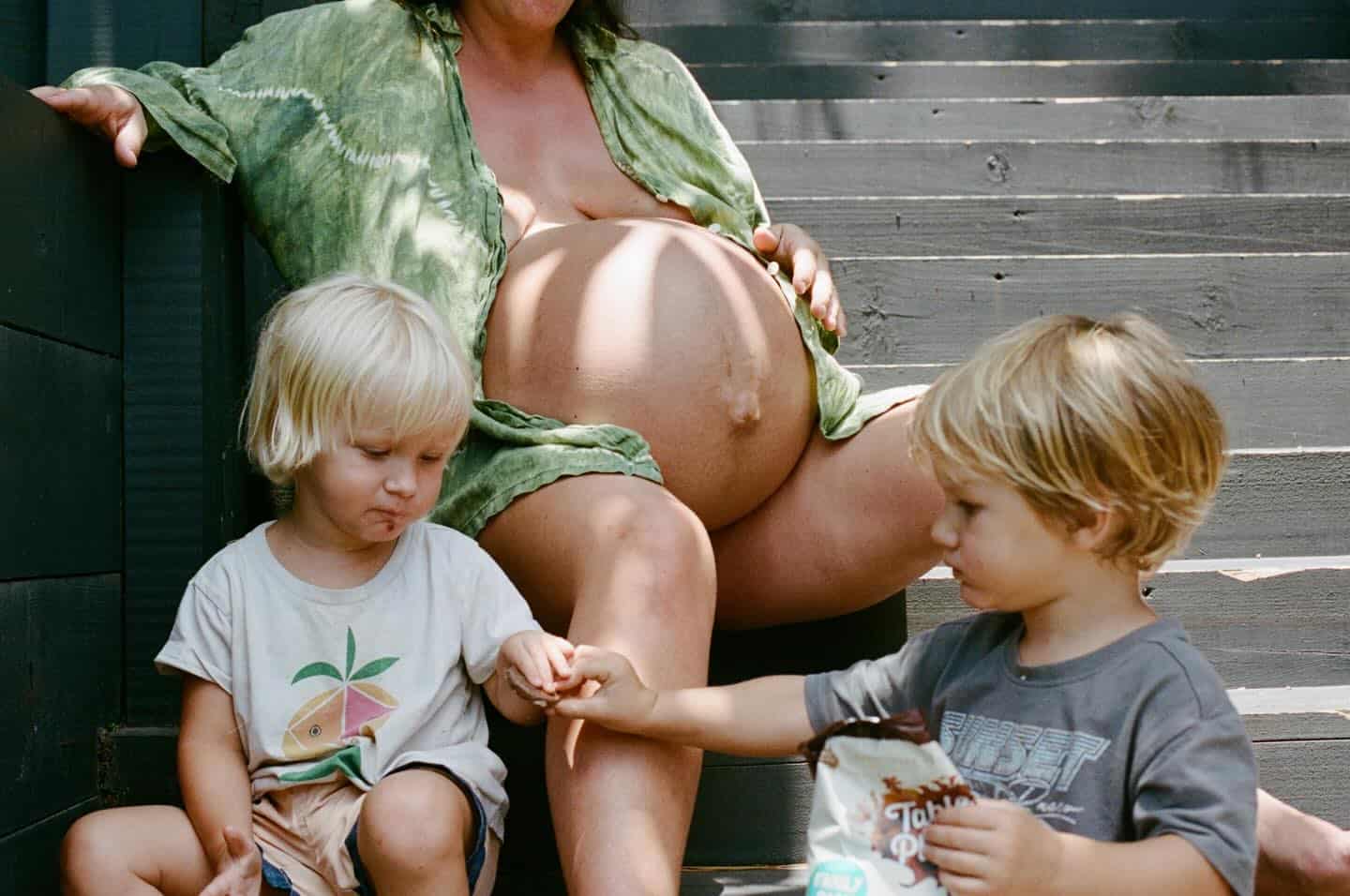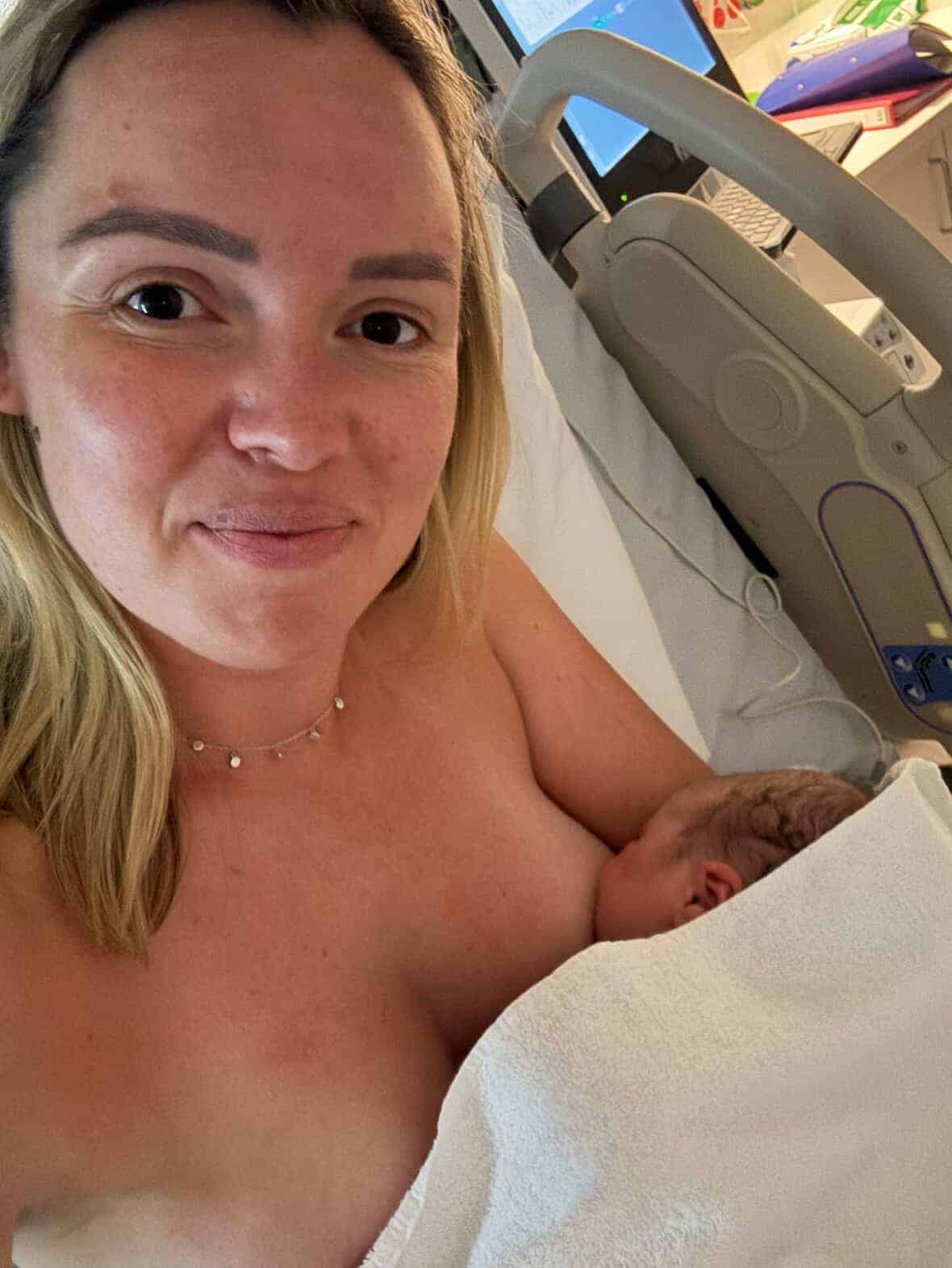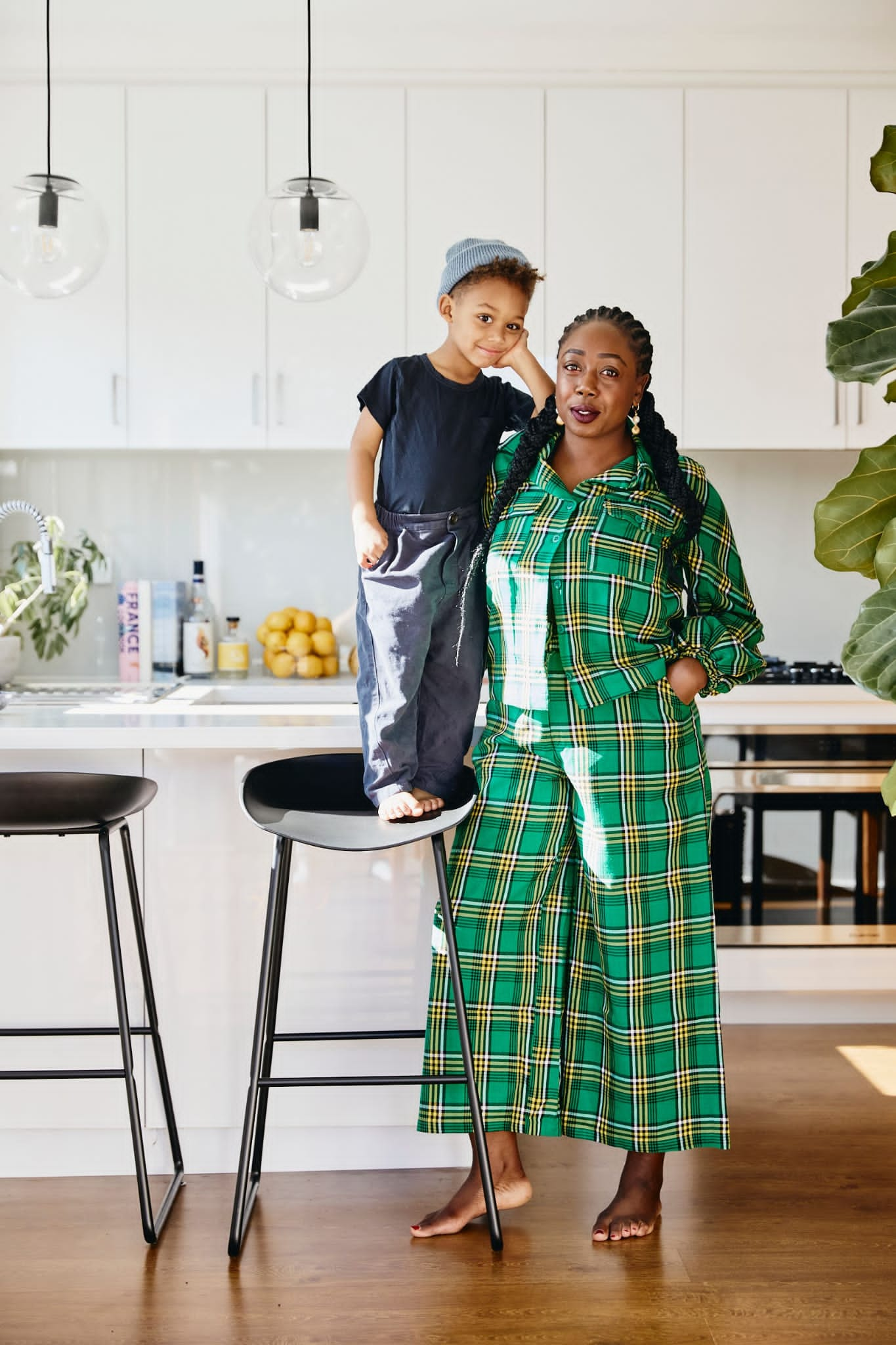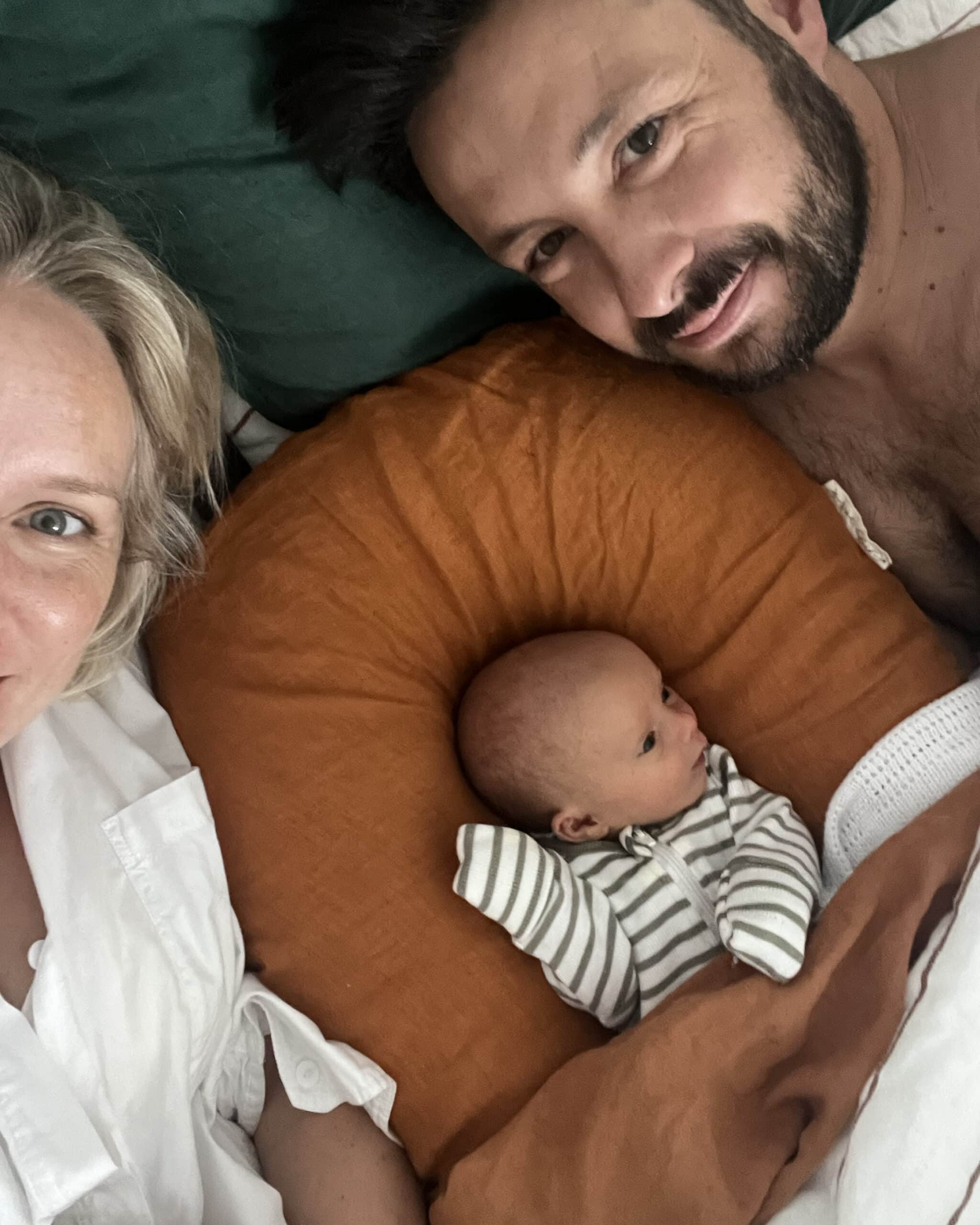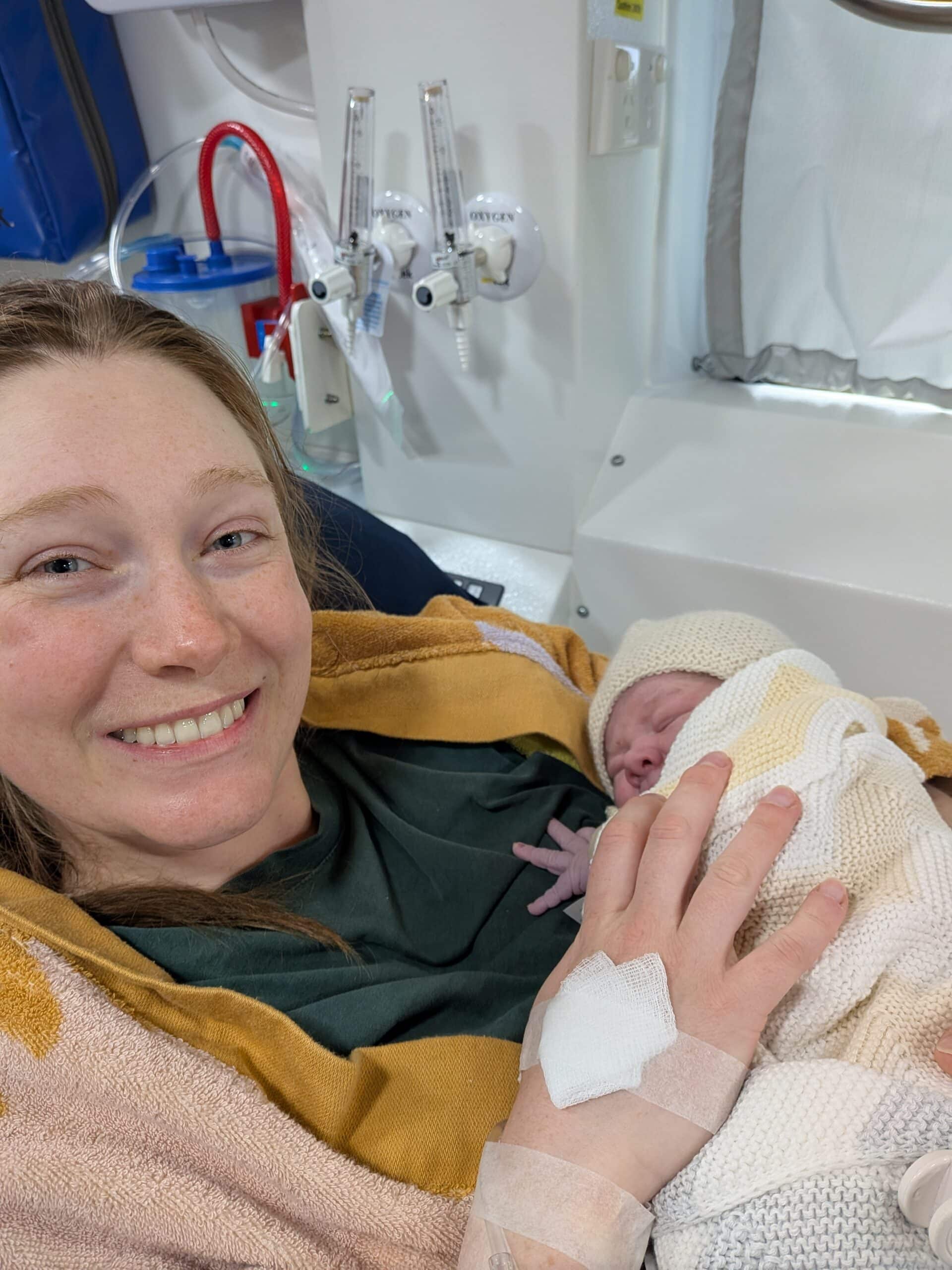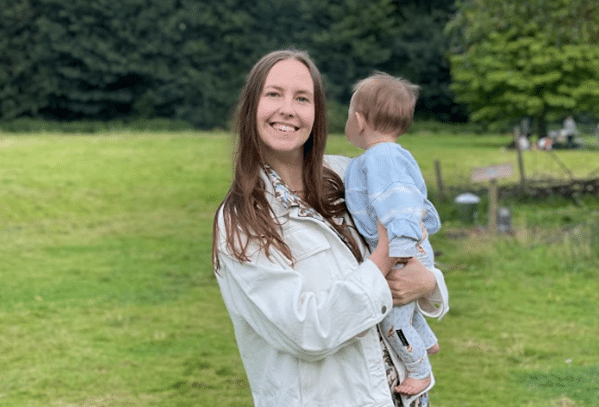Podcasts Arnikka | Postpartum – IBCLC, neurodivergence, autism, ADHD, sensory overwhelm
EPISODE 475
Arnikka | Postpartum – IBCLC, neurodivergence, autism, ADHD, sensory overwhelm
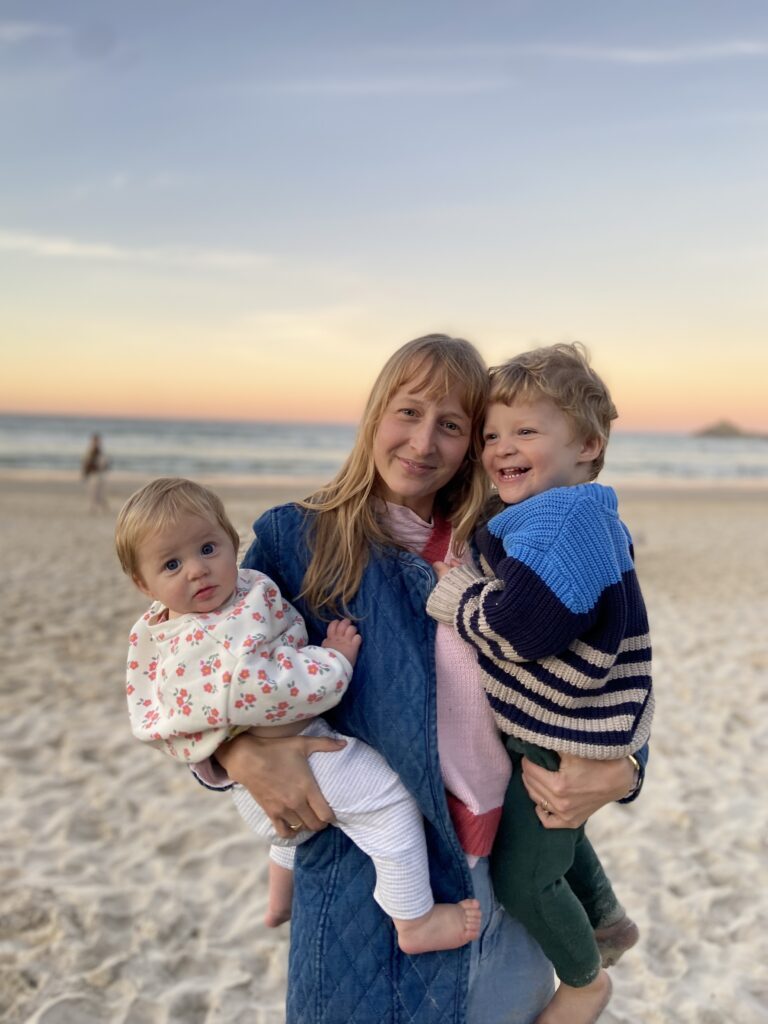
“I got to a point, at four or five months postpartum, and I recognised a lot of the same feelings that I’d had in my first postpartum. I felt so overwhelmed by the mental load and it wasn’t that I was unhappy but I found it so hard to get through the day. I considered postpartum depression and presumed that I had it but I also love to learn and I have a very active brain so I thrive when I’m researching; I also don’t do well when I don’t have a lot of stimulation. I made the decision to study for my International Board Certified Lactation Consultant qualification when I was eight weeks postpartum. I was feeling really good at that stage and then a few months later it was really challenging to get through my work and family life and my nervous system was very fragile.
“I decided to get some help to better understand myself and the way my brain and nervous system works. I got a referral from a GP and I was really emotional when I acknowledged my need to see a psychologist. The GP immediately labelled it as PND but I went to see a psychologist and I’m so lucky that I found the one I did because she’s changed my life. I’ve been supported by a team of professionals who understand neurodivergence and how it presents in women. I’ve been masking my qualities for so long, to not show certain aspects of myself, from a very young age.
“I’d never even heard the word ‘neurodivergent’ before I went in; I’d never considered it; I’d just accepted that my brain worked differently and I had to be active and doing things, engaged with things that really light me up. I lean into the things that feel good but I didn’t understand my system and how to support myself.
“I sat with my psychologist and told her I had two babies and I’m studying and I’m finding life too hard. She asked me a bit about myself and I admitted that I just wanted to understand my brain, because I don’t understand sarcasm and certain phrases and I feel very naive in many circumstances. I’ve learned ways to be smaller to protect myself and I just told her I wanted to understand who I am. When she mentioned the possibility of autism and ADHD I was really taken aback because I’d never considered it. I went home and read six books in two weeks. There were so many aha moments for me. I definitely went through a period of grief because it was tough to understand myself…it’s been the best thing to ever happen to me, the best thing in the world, I feel incredibly happy and joyous and relieved to finally know myself, to have intense interests and communicate in such a specific way. It’s a relief not to feel less than or stupid; I can focus on my strengths as a human being now. And I can understand how I can care for myself.
“Masking is a skill that’s learned from others; you’re camouflaging your unique traits so you look like everyone else and that can be really tiring. When you mask you can assimilate and not have people question you or put you in a position where you feel different. You internalise those aspects of self that are unique to you. I’ve come to acknowledge that masking is not a bad thing; it’s a great tool and it’s part of who I am. But I also know that if I’ve been to an event and masked, I’ll need a few days at home where I don’t talk to anyone and have very limited sensory input because masking is tiring.
“Autism has been around forever and it’s just a natural form of human diversity. There’s not a lot of information in the perinatal space even though there’s a lot of emerging research which is exciting. A lot of neurodivergent women have coexisting depression and anxiety and mental health conditions but they may also be an autistic women with multiple episodes of burnout and dysregulation and have been incorrectly diagnosed.
“If you are curious or you feel like you’ve struggled, finding someone who understands neurodivergence and how it can present is really important. My connection to my sensory system has been the biggest piece of my puzzle, to truly understand what I need. I can’t sleep without earplugs in; my sense of hearing is so sensitive to any noise, I can’t switch it off. I find sound really intrusive sao I can’t separate noises and focus; loop earplugs have been a game changer for me, they reduce environmental decibels but allow me to have conversations without intrusive noise, the distractibility is reduced. I’m sensitive to light and touch and while I seek sensorial detail, too much is too overwhelming. As a child I was impossible to take to the dentists and doctor and hairdressers; I was intensely sensitive to it all. I went to so many different specialists and no one knew about neurodivergence in women.
“I had to unlearn so many of my own stigmas around autism and ADHD because like many people, I had a really stereotypical view. Autistic people
“It’s nice to learn about the things that help you feel regulated in your body. I go through a lot of epsom salts and I unapologetically indulge in the things I love to do like reading and studying about breastfeeding, babies, neurodevelopment and cues. I need to do it to fill up my cup. Research and study is how I play, it’s how I enjoy life. I’m so hungry for information, which is why I started studying at eight weeks postpartum because it lights me up. But regulating and accommodating my sensory needs has allowed me to create space in my body so I don’t feel overwhelmed and I know what to reach for when I start to feel dysregulated.
“My children are low sleep needs so they don’t sleep much at all. They’re both in childcare a few days a week so I can study and care for myself; it’s the support I needed and it worked for us all, the kids are thriving and it’s the right choice for our family.
“When I’m supporting families as an IBCLC I encourage them to honour their values and really ask what they want and value. When you look at the big picture, that’s what I do; helping a mother identify what she wants, block out the external noise and getting to that point is really helpful and valuable. I applied the same process to me and my mothering; trying to be flexible and figure out what feels right for our family.
“I was interested in exploring medication. I’m a verbal processor and I often come to conclusions while talking so I made a vlog for myself on the first day of taking ADHD medication and it was….unbelievable. I couldn’t believe how quiet my brain was. I’m just starting something and finishing it; it’s very straightforward. It took time to find the right dose; my psychiatrist is really supportive and while the medication was making such a huge difference, it wasn’t lasting long so we’ve really titrated it to ensure I was taking the right dose at the right time. There’s a lot of stigma that exists around medication and I was breastfeeding at the time so I did a lot of reading into how medication is transferred into milk. There are options for women who have ADHD and want to breastfeed.
“All postpartum women struggle with executive functioning whether they’re neurodivergent or not, because your oestrogen plummets and oestrogen is one of the key hormones that helps to regulate your dopamine but if you’re ADHD, you’re already deficient in dopamine. Medication for ADHD in the perinatal space is incredibly supportive for a lot of individuals and can significantly reduce the incidence of many poor outcomes in terms of birth and PND and anxiety.
“I don’t want to put a label on my children or even look for it. I think the world’s awareness of neurodivergence is changing so quickly; today, neurodivergence is just a part of being in school now, it’s part of life and it’s just a form of diversity. It’s been helpful for me to understand the labels purely because I’ve spent so much of my life not understanding myself or the way I function. All people, even newborns, have sensory preferences. It’s helpful to seek support when it’s impacting your quality of life and having a label can be empowering and supportive in that instance.”
Resources:
Is This Autism?: A Guide for Clinicians and Everyone Else by Henderson, Wayland + White
Topics Discussed
ADHD, autism, IBCLC, neurodivergence, Postpartum, sensory overwhelm
Episode Sponsor
Today’s episode of the show is proudly brought to you by Once Upon.
I’m not sure about your kids but mine love looking at old photos of themselves. I recently made Ottie a photo book with the help of @onceuponapp It was so quick and easy to make I just selected photos in my phone and the @onceuponapp suggested the layout and offered lots of choices at the click of a button. I’ve ordered an extra copy to gift to my mum for Mother’s Day too.
You can document your memories in a beautiful book today.
Categories
Related Products
-
Birth Meditations
$49.00Narrated by Sophie Walker, these soothing and informative meditations help you feel supported and confident around birth.
Join the conversation
Sign up to get the latest updates, freebies, podcast releases straight into your inbox
@AustralianBirthStories
Follow along with us
@AustralianBirthStories
Follow along with us
@AustralianBirthStories
Follow along with us
@AustralianBirthStories
Follow along with us
@AustralianBirthStories
Follow along with us
@AustralianBirthStories
Follow along with us
@AustralianBirthStories
Follow along with us
@AustralianBirthStories
Follow along with us
@AustralianBirthStories
Follow along with us
@AustralianBirthStories
Follow along with us
@AustralianBirthStories
Follow along with us
@AustralianBirthStories
Follow along with us
